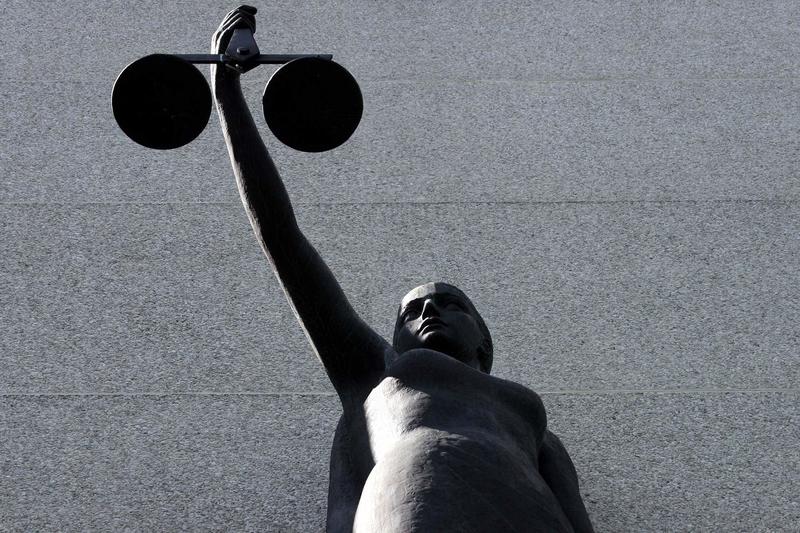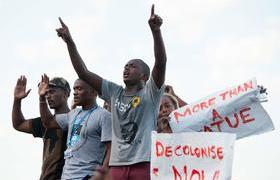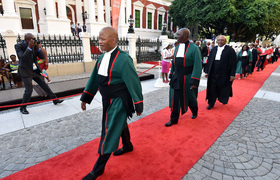COVID-19 has ‘reproduced non-constitutional tendencies’ in SA
01 February 2021 | Story Niémah Davids. Photo Getty Images. Voice Neliswa Sosibo. Read time 5 min.
“What COVID-19 has done is to reproduce, as it were, non-constitutional tendencies, which have spread like wildfire [across] South Africa.”
Professor Dennis Davis, a respected judge and honorary professor of law at the University of Cape Town (UCT), shared these sentiments during an afternoon Summer School lecture on Thursday, 28 January. The lecture was titled “COVID-19: How fragile is SA’s democracy today?”
Addressing the virtual audience, Professor Davis said that some may agree with his claim and some may not, but that it was up for discussion and debate.
State of disaster
Davis said the national state of disaster declared in March 2020 at the onset of the COVID-19 pandemic in the country was “perfectly understandable”.
“The government was battling with a unique situation, which all countries in the world were battling to negotiate and which had not occurred in 100 years,” he said.
But Davis said that since March 2020 South Africans have been living in a country in which the National Coronavirus Command Council has “replaced all forms of government”.
“We seem to have a parallel structure of a [facile], docile, somnambulant parliament, and then a command council which has basically vacuumed up all the political power in the country.”
“We do not have a parliament that has actually been allowed to find out sufficient information so that the public can understand what is going on. We seem to have a parallel structure of a [facile], docile, somnambulant parliament, and then a command council which has basically vacuumed up all the political power in the country,” he said.
All this, he explained, has resulted in some “profound erosions” of the principles fundamental to constitutional democracy.
A case in point
Davis said that ordinary South Africans lack access to transparent information, especially relating to the COVID-19 vaccine.
“If you look at the vaccine saga, it appears to me that every week the narrative changes. How many vaccines are we going to get? Where are we getting them from? How are we going to roll out a vaccine programme for 40 million people by December [2021] … how much do we not know?” he asked.
He also questioned the negotiation process with pharmaceutical companies to secure the vaccine. These negotiations are said to have taken place between September 2020 and January 2021, he added.
Davis explained that if negotiations started in September, the proper procedure should’ve been to establish exactly how much it would cost. These top-level discussions should’ve involved the minister of health and the minister of finance, who collectively should’ve discussed plans with the rest of cabinet to reach consensus.
“We don’t know whether, in fact, the proper conversations took place at cabinet [level]. You would assume that there would’ve been a decision taken broadly [on] how to fund this [vaccine], not scramble around in January trying to tell us a whole different range of stories,” he said.
“[This] basically means that the constitutional structure of an executive run-through of cabinet, accountable to a parliament, to have proper hearings and to debate all these questions really did not take place at all. Or, seemingly, it didn’t take place at all. If it took place, we’d like to know so that we can understand.”
COVID-19 legacy
What, he asked, does all this suggest? He said that to a large degree, the very idea of constitutional democracy, where the public should be entitled to information, has not been granted.
“[The public has] a fundamental right to know. Accountability to the public is [also] absolutely central.”
“[The public has] a fundamental right to know. Accountability to the public is [also] absolutely central. [These] two principles … are distant cousins from reality, and they haven’t met for years.”
In closing, Davis questioned whether the legacy of the COVID-19 pandemic and the national state of disaster would “increase tendencies” that would result in an erosion of constitutional democracy.
“[Will it erode] the kind of toleration, the kind of forbearance which is absolutely essential [to constitutional democracy]?
“I don’t know.”
 This work is licensed under a Creative Commons Attribution-NoDerivatives 4.0 International License.
This work is licensed under a Creative Commons Attribution-NoDerivatives 4.0 International License.
Please view the republishing articles page for more information.










